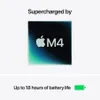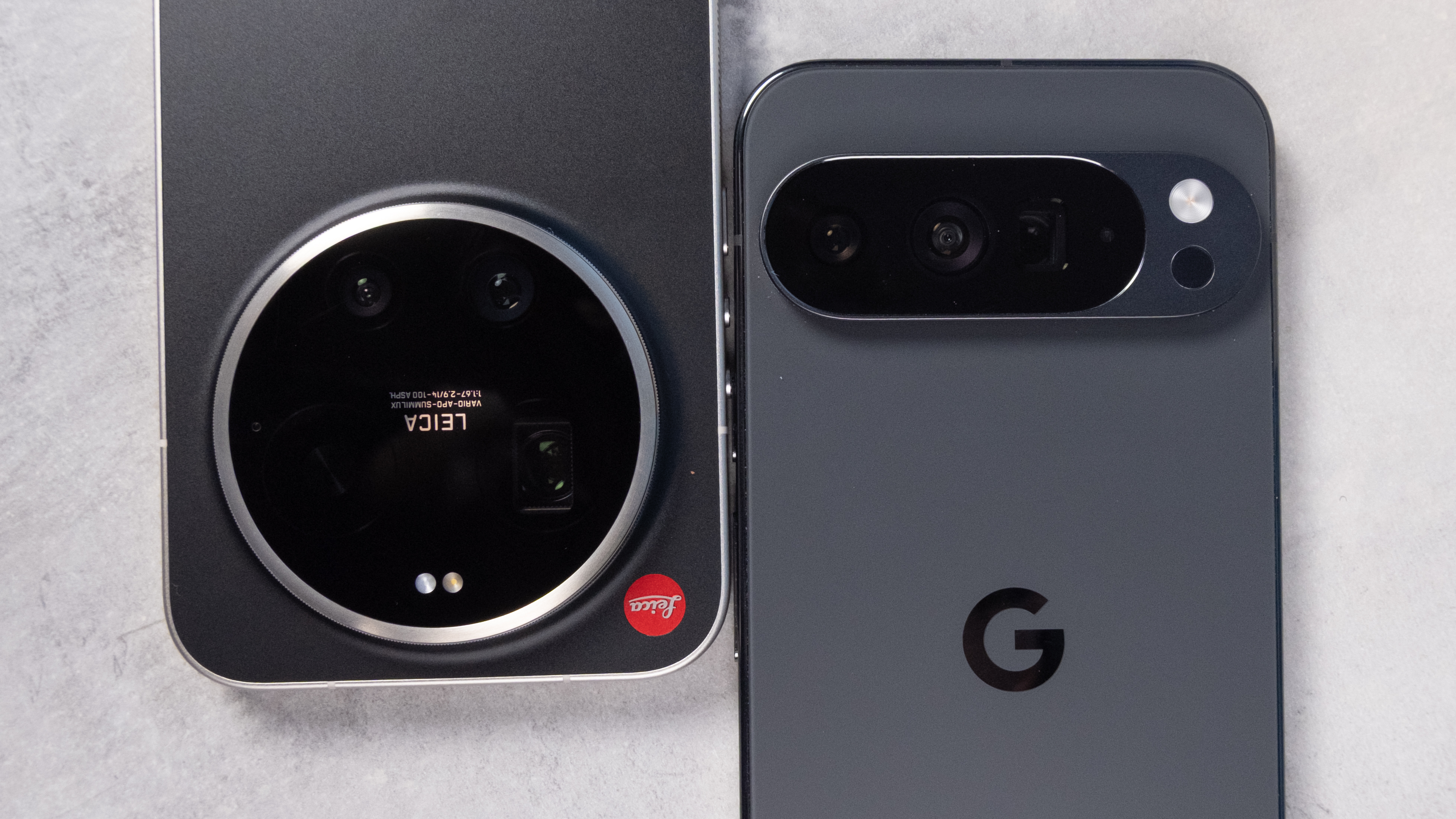Tom's Guide AI Awards 2025: 17 best AI tools and gadgets right now
The very best in AI right now
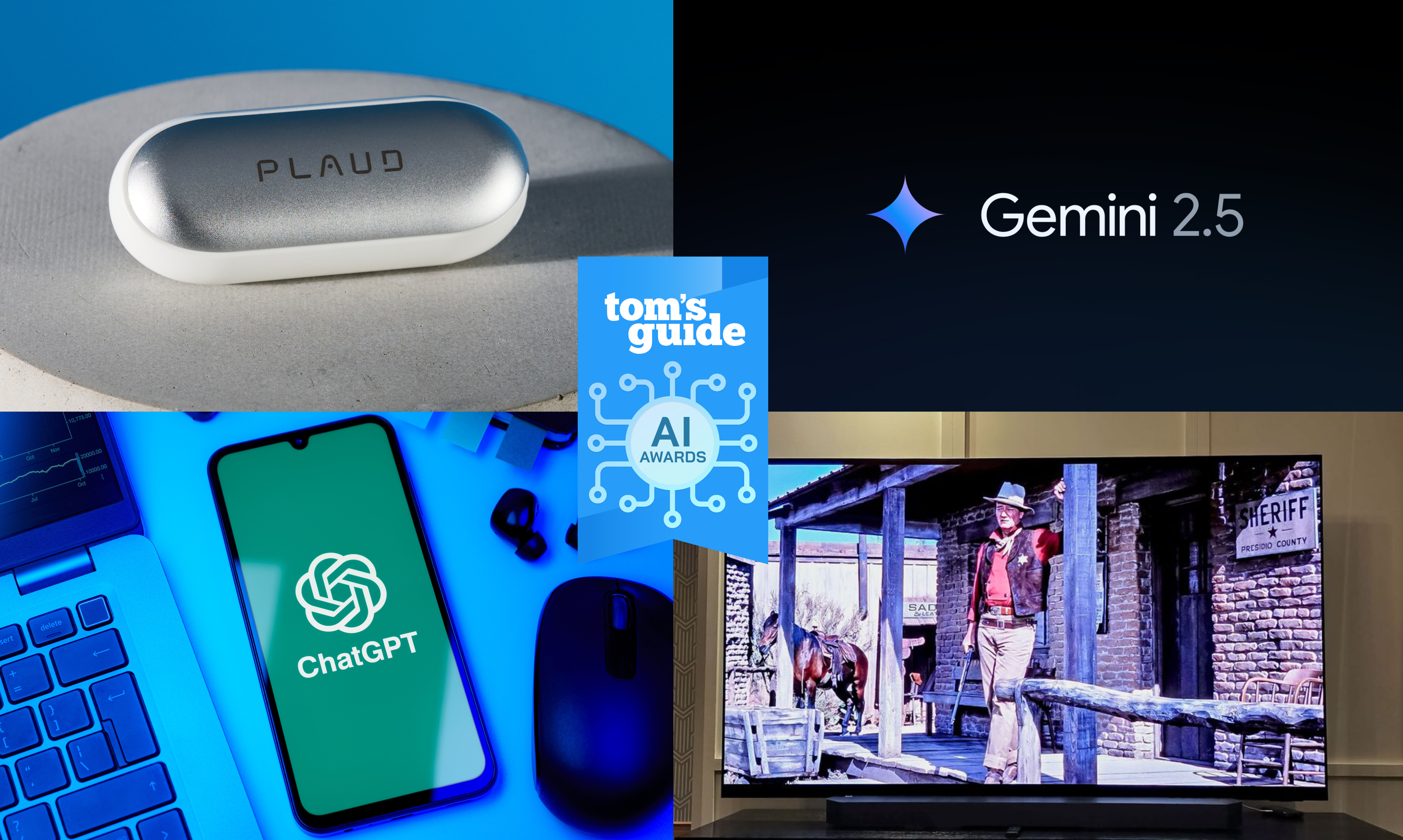
- Best AI model (LLM)
- Best AI chatbot
- Best photo generator
- Best video generator
- Best AI search tool
- Best AI research tool
- Best AI voice assistant
- Best AI writing tool
- Best AI laptop
- Best AI smart glasses
- Best AI phone feature
- Best AI smartphone
- Best AI sleep feature
- Best AI health and fitness device
- Best AI TV
- Best AI wearable
- Best AI smart home device
Here at Tom’s Guide our expert editors are committed to bringing you the best news, reviews and guides to help you stay informed and ahead of the curve!
You are now subscribed
Your newsletter sign-up was successful
Want to add more newsletters?
Join the club
Get full access to premium articles, exclusive features and a growing list of member rewards.
Across all of the areas of tech, we here at Tom's Guide are certain artificial intelligence is leading the charge.
It's in your smartphones, TVs, fridges and just about any product with a screen these days. More than that, AI models and chatbots are changing the world, bringing a new kind of productivity to both individuals and companies alike.
With that in mind, our inaugural Tom's Guide AI awards are a chance to celebrate the industry and the best implementations of the tech we've seen over the last 12 months. From the best AI chatbots and image generators, to the best fitness trackers and AI sleep tech — it's all here.
Our AI awards recognize the best in the industry, rewarding innovation and real-world impact in a market that feels increasingly crowded.
These awards have been judged by our in-house experts on the Tom's Guide team. Bringing together a wealth of tech experience, every product in this list has been tested extensively.
After hours of AI prompting, device testing and generally making the most of the AI revolution, these are the winners of the Tom's Guide AI awards 2025.
Best AI model (LLM): Google Gemini 2.5 Pro
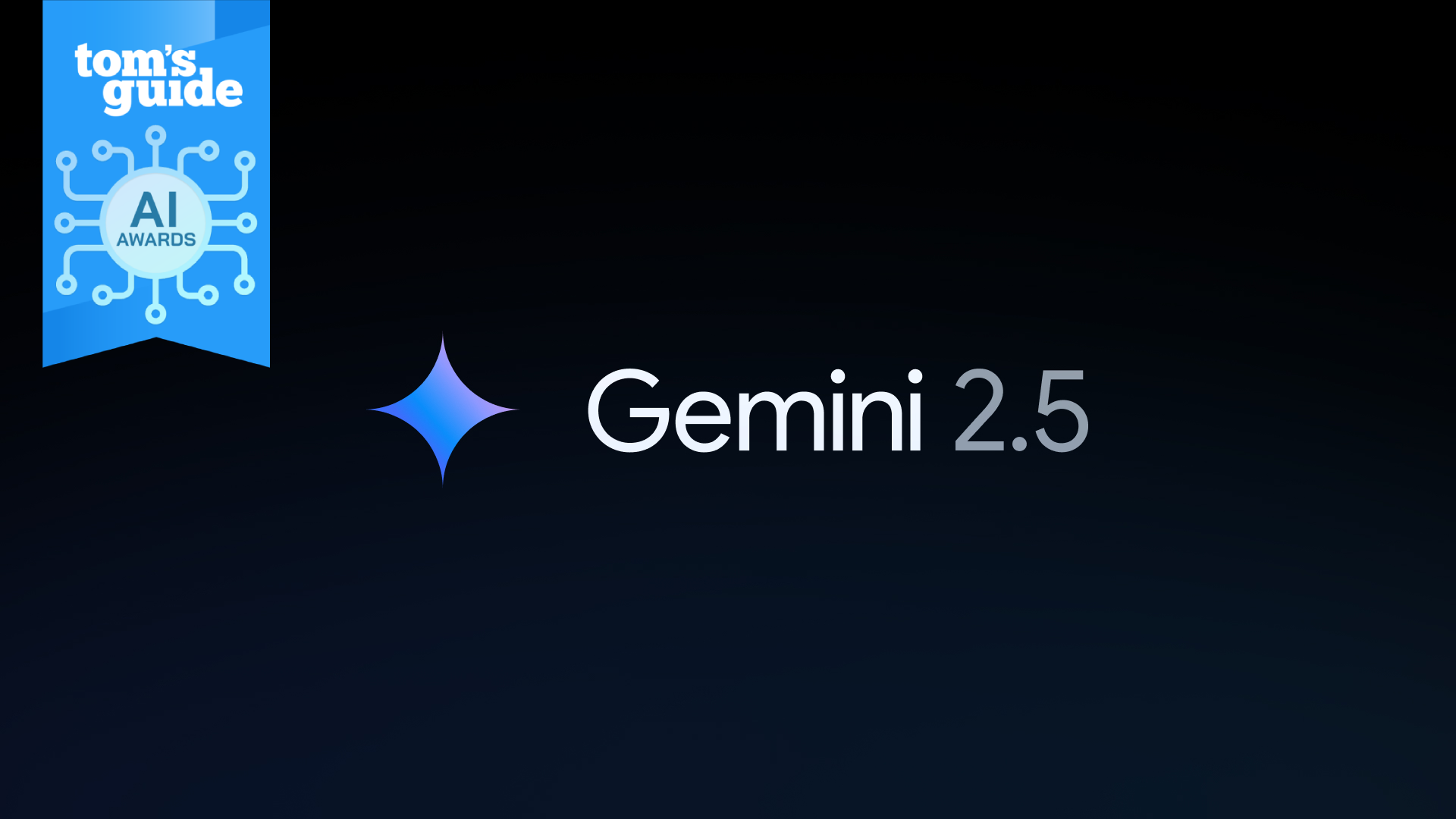
A late addition to the game, Google’s Gemini 2.5 Pro has been topping the leaderboards of some of the best-known AI benchmarks.
Get instant access to breaking news, the hottest reviews, great deals and helpful tips.
Excelling at coding and app development, educational tasks and mathematical thinking, Gemini is showing the potential that AI has to offer over the next few years.
While the competition is strong, with OpenAI’s reasoning models equally topping an array of leaderboards, and the likes of DeepSeek offering a much more affordable alternative, Gemini’s recent announcements at Google I/O 2025 secures its position as the leading power right now.
This won’t last for long with the speed that AI is currently moving, but with advancements in deep reasoning, video generation voice assistants and AI agents, Gemini is excelling everywhere right now. - Alex Hughes
Best AI chatbot: DeepSeek
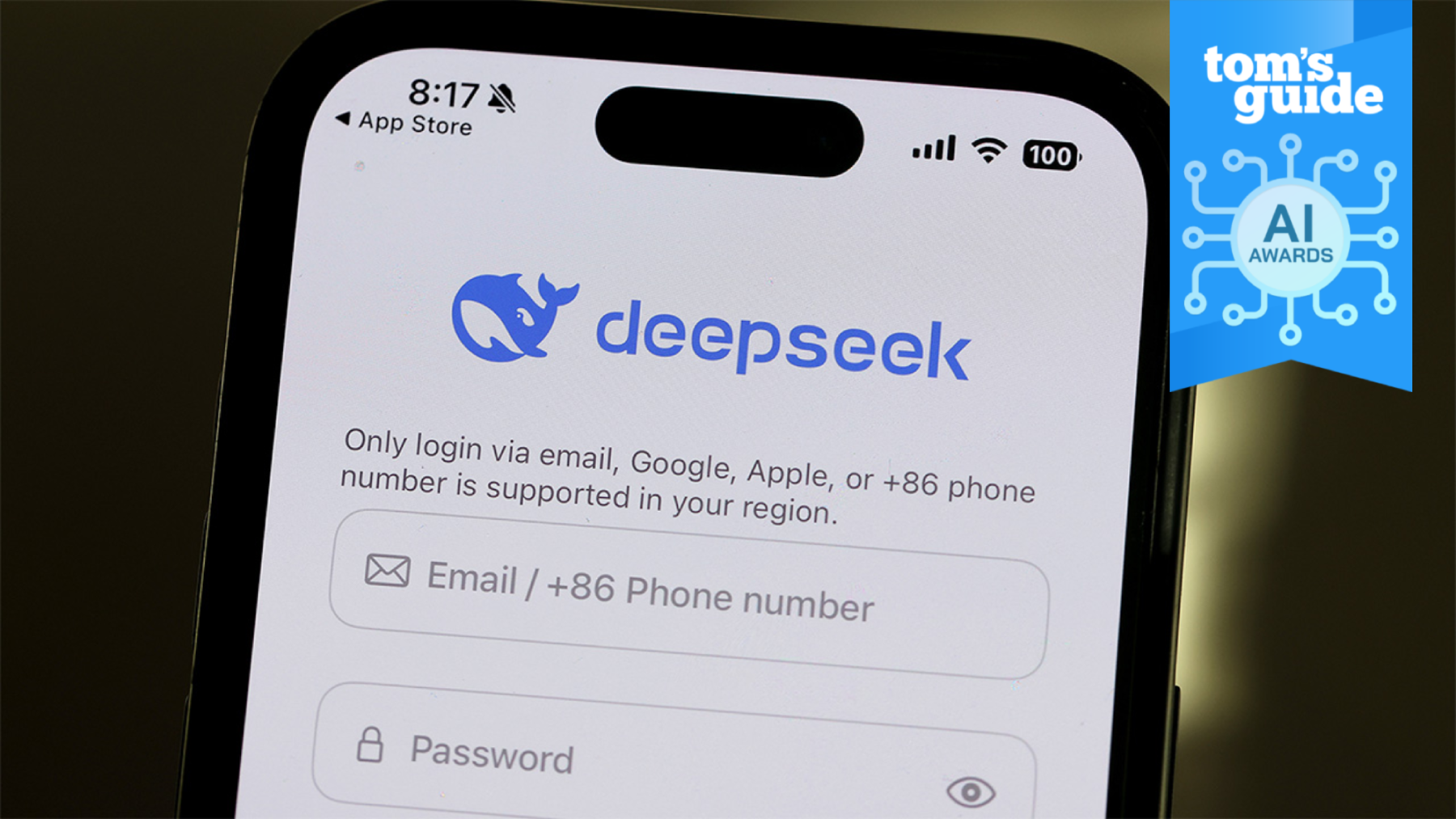
DeepSeek has carved out a spot as a scrappy contender in the AI chatbot space, standing out for its strong performance in coding, creative writing and logical reasoning — all driven by its impressively efficient V3 model.
After winning our AI Madness competition earlier in the year, this underdog continues to gain traction with a clean interface, mobile apps, and built-in image generation, offering a flexible toolset for developers and creatives alike.
While more polished platforms like ChatGPT tend to play it safe, DeepSeek’s looser content filters make room for edgier, more experimental responses — though that freedom can lead to more hallucinations and factual missteps.
It’s available in both free and paid plans ($10–$20/month), but its China-based servers and avoidance of sensitive topics have raised some concerns. Still, for those comfortable double-checking the facts, DeepSeek proves that budget-friendly AI can still deliver big results. - Amanda Caswell
Best AI photo generator: ChatGPT
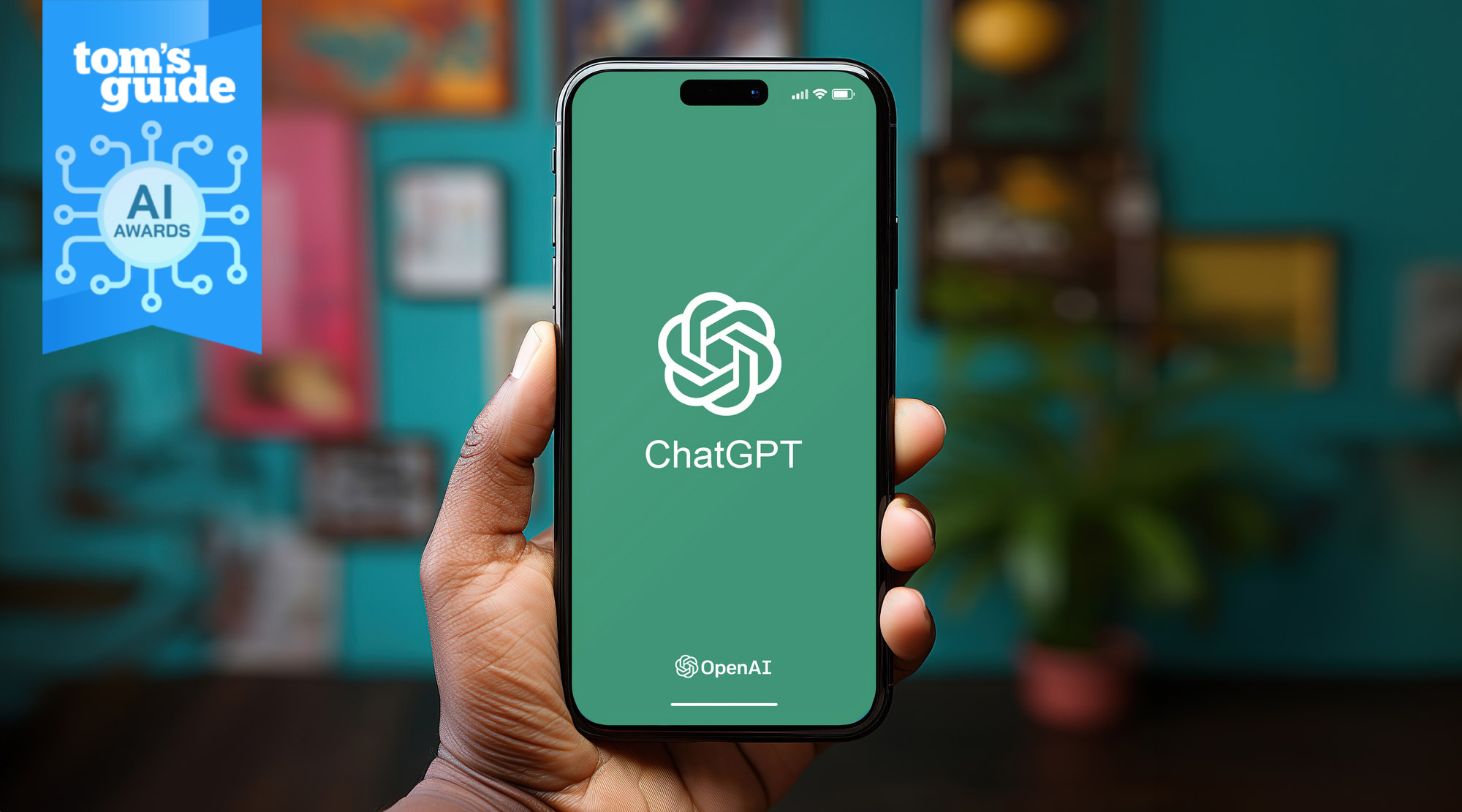
Photo generation has come a long way in recent months, but no company has shown this more than ChatGPT. Yes, there has been fierce competition from the likes of Gemini, Midjourney and new comers like Freepik, but since its latest image update, ChatGPT has shown no signs of slowing down.
While it doesn’t like to stray too far into the world of creativity like Midjourney, ChatGPT’s image generation is consistently producing top-tier AI images. More importantly, the model has developed its prompt understanding far beyond the competition, generating high-quality images from incredibly simple prompts. - Alex Hughes
Best AI video generator: Kling 2
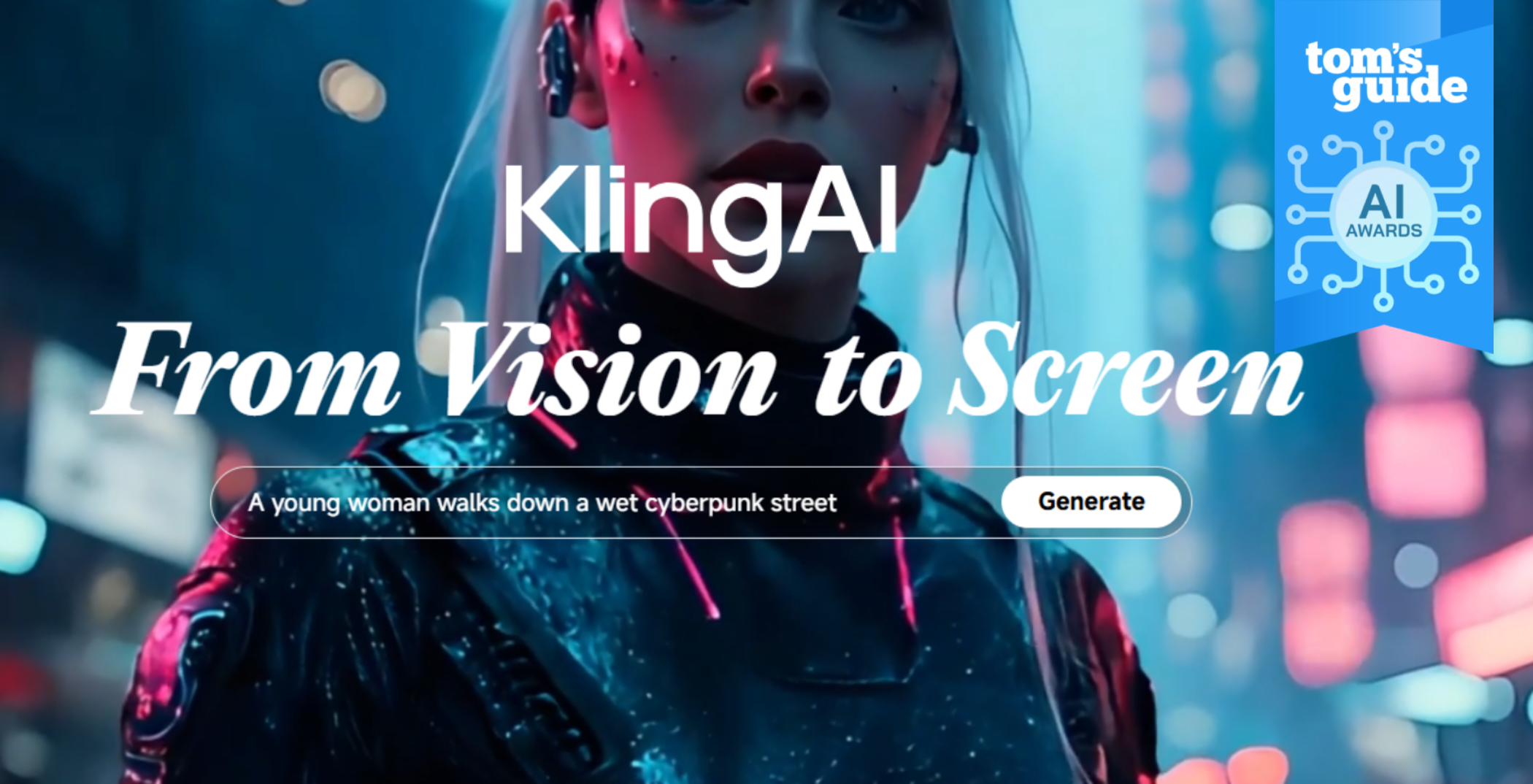
A relative newcomer to the scene, Kling only launched last year. And yet, it has quickly dominated the space of AI video generation. Sure, this technology is fairly new in general but with Kling’s second generation that launched in the last couple of months, it has quickly asserted itself into the world of AI.
There are plenty of other great video generators out there, like OpenAI’s Sora or Runway, but for the blend of pricing, creativity and quality, Kling snags the top spot in our eyes.
However, it's worth noting that this space is growing rapidly. Gemini has just updated its AI-generated video tool and is turning heads with its Veo 3 model and Flow video creation tool. Watch this space. - Alex Hughes
Best AI search tool: Perplexity
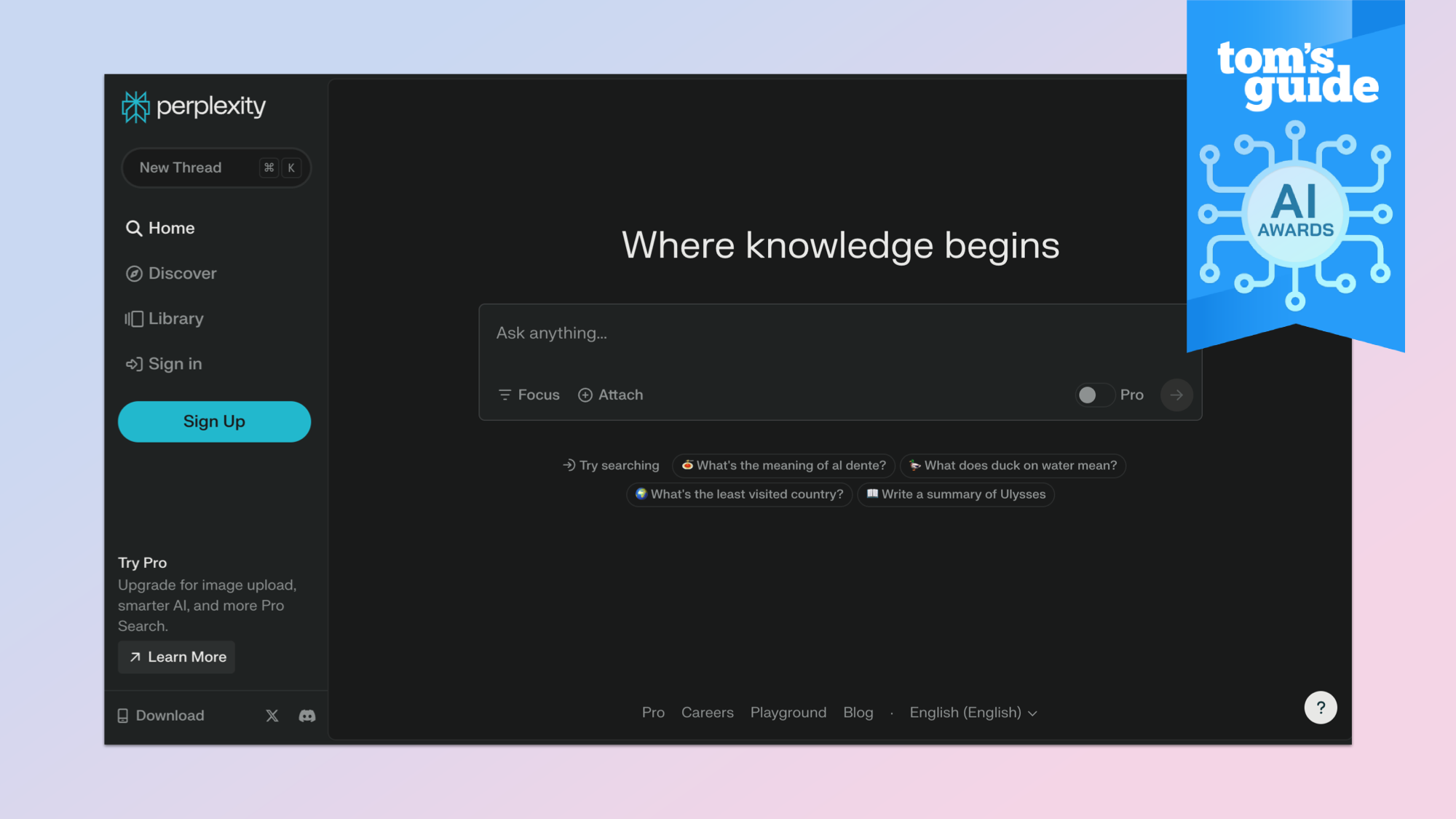
Perplexity has cemented itself in the world of AI thanks to its impressive search capabilities. Think Google, but with more generative AI and detail.
While it's still a chatbot — like Gemini or ChatGPT — Perplexity has made the most of searching the internet, guiding you through buying advice, giving directions or simply helping answer the burning questions on your mind.
We even tried replacing Google with Perplexity as a daily search engine, and we were impressed by it's sheer versatility and helpfulness.
With recent news of a partnership with PayPal — meaning this could be the first chatbot to allow in-app purchases — Perplexity is taking AI search to a level no competitor has yet to reach. - Alex Hughes
Best AI research tool: NotebookLM
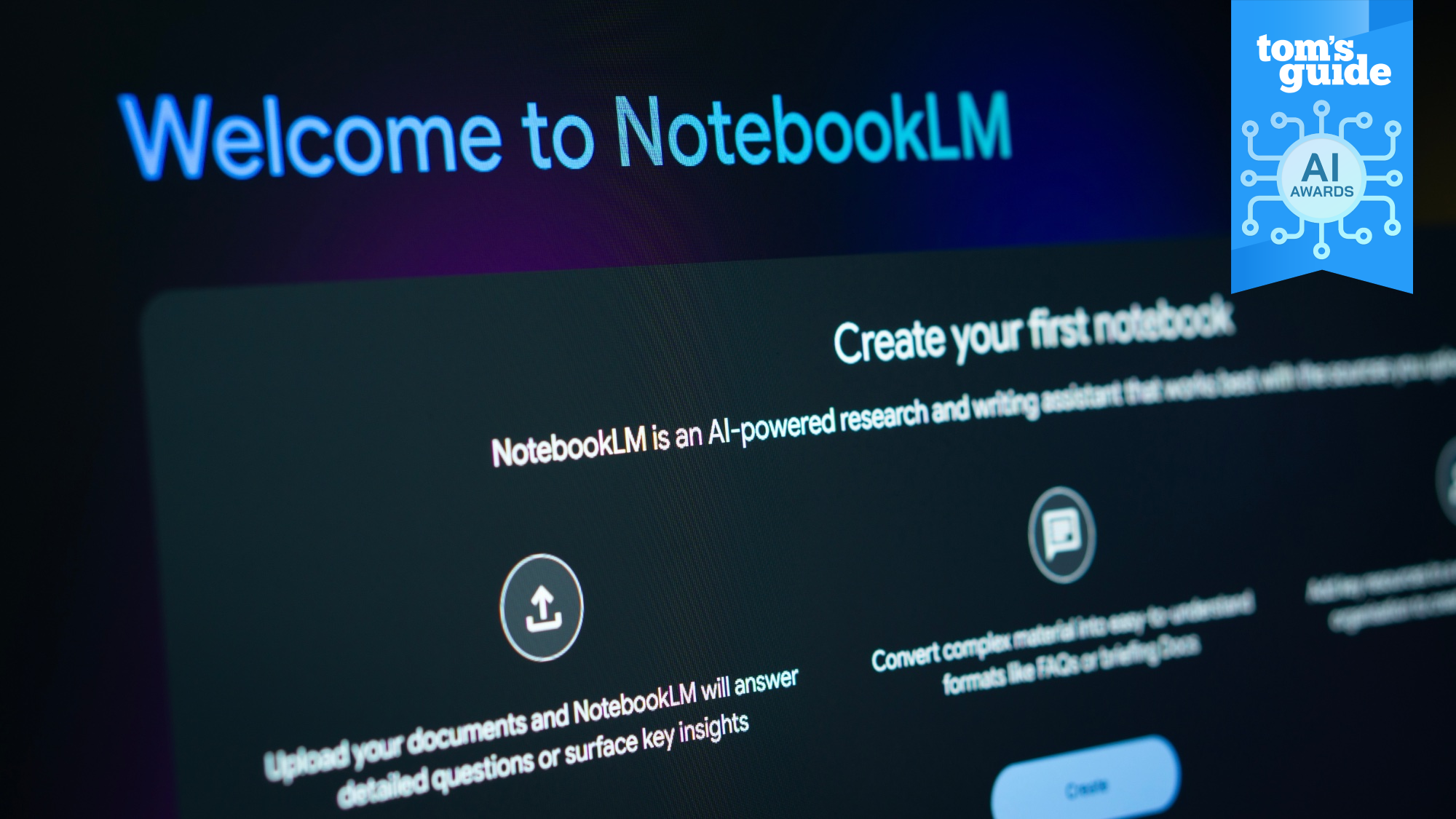
A research tool developed by Google, NotebookLM has become one of the best AI tools out there.
It's described as a note taking and research assistant which, on the face of it, doesn't sound too exciting. However, when it comes to any research project, NotebookLM does exactly what you need.
Upload PDFs, websites, YouTube videos, Google Docs and pretty much any type of online file and NotebookLM can search through them. These files are all then analyzed, providing timelines, FAQs, study guides and briefing documents. With more recent updates, you can even get audio overviews in a podcast style or mind maps.
While other AI brands have started to offer similar systems, this remains the best AI research tool we've tried at Tom's Guide, especially considering how well it is able to analyze large chunks of data.
Don't have a project in mind yet? NotebookLM can also generate research around a random topic, searching the internet for the best sources of information for you to learn. - Alex Hughes
Best AI voice assistant: Gemini Live
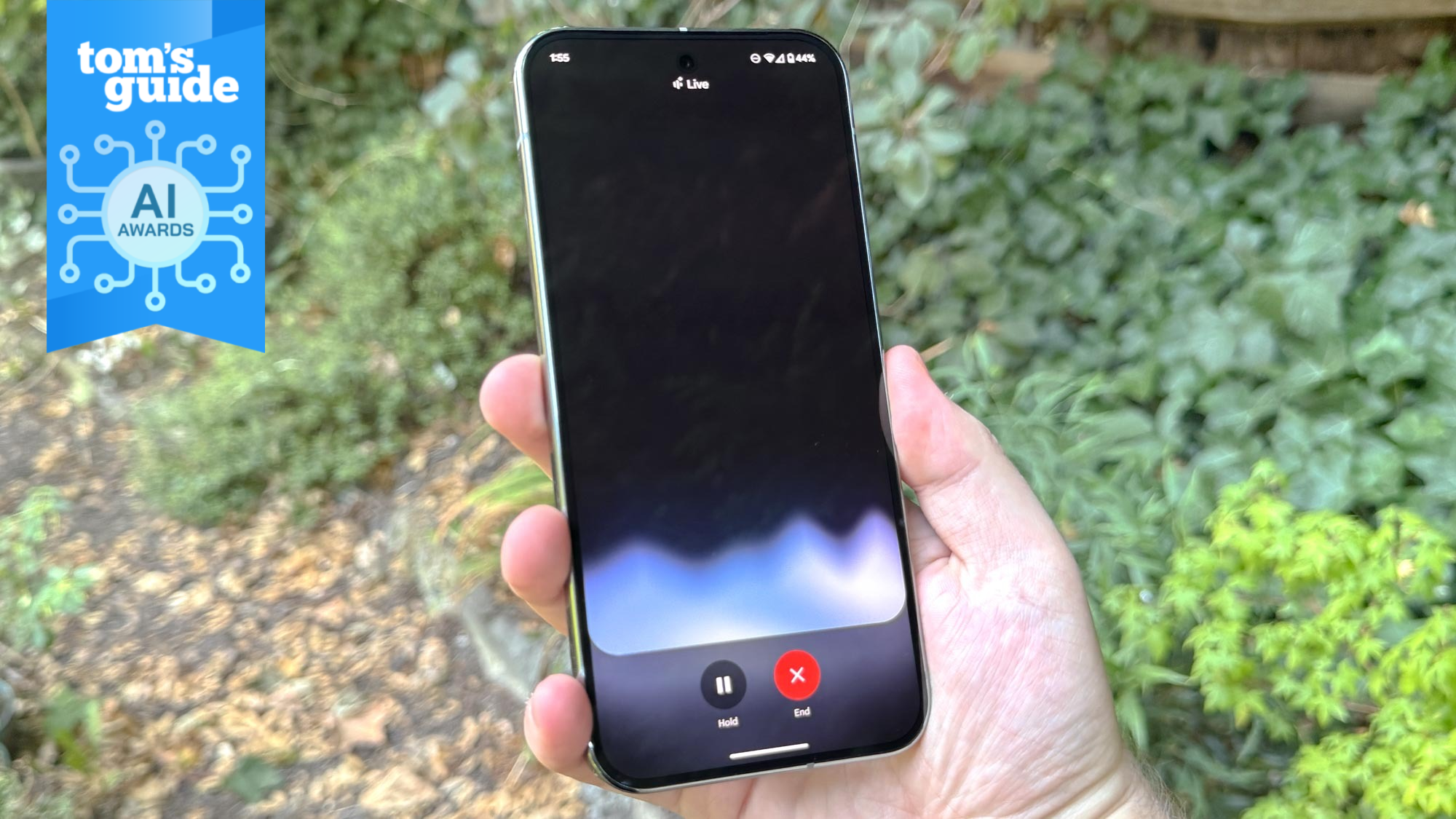
Google's Gemini Live, now free for all users, sets itself apart from traditional voice assistants by offering a more dynamic and context-aware experience.
Instead of relying solely on spoken commands, it allows both Android and iOS users to share their smartphone’s camera and screen, enabling real-time assistance based on what the AI can see.
This multimodal approach means Gemini Live can identify objects, provide visual step-by-step guidance and offer insights on content users are actively interacting with.
The assistant also supports natural, free-flowing conversations, adjusting to interruptions or shifts in intent without losing track. Its integration with Google services like Gmail, Drive, and Calendar (with user permission) allows it to deliver personalized and contextually relevant responses.
With support for over 45 languages and recent expansion to iOS, Gemini Live is designed to be both versatile and accessible — positioning it as the leader in the evolving voice assistant space. - Amanda Caswell
Best AI writing tool: Grammarly
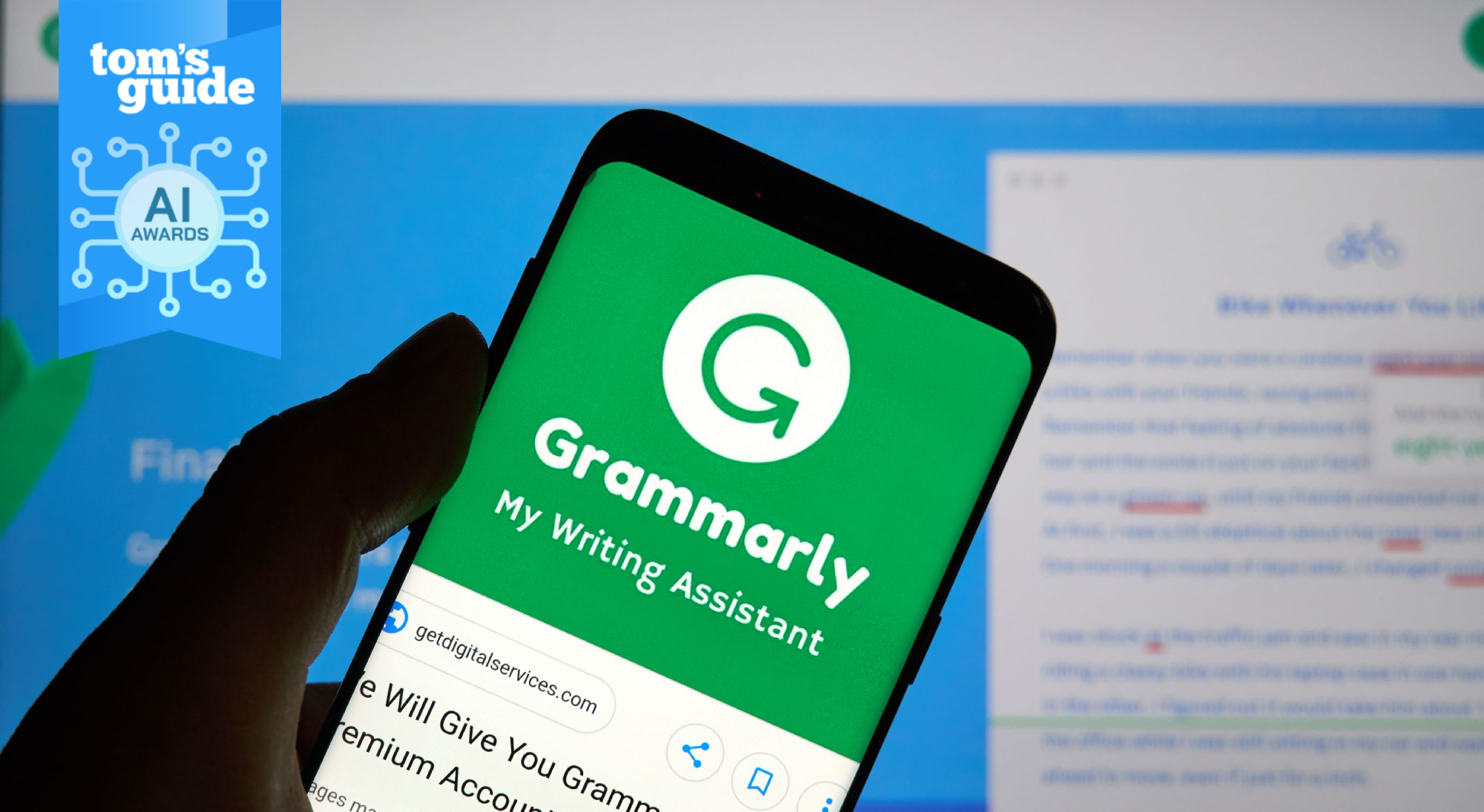
Grammarly has been around for years now, offering up one of the internet's best grammar checkers. However, by making the most of advancements in AI, Grammarly has managed to remain ahead of the competition.
It excels when it comes to refining existing text, and fixing those little mistakes that sneak through. On top of that, for an AI tool, it's surprisingly human-like in its suggestions for style changes and how to add some character to your writing.
Grammarly can detect AI writing, and is available across a huge range of platforms, including as a Chrome extension or a standard word processor like Microsoft Word.
It's not that Grammarly is necessarily the most impressive AI writing tool out there, but it thrives in its usefulness, utilizing AI in a way that is necessary for millions of people. - Alex Hughes
Best AI laptop: Asus ROG Strix Scar 18 (2025)
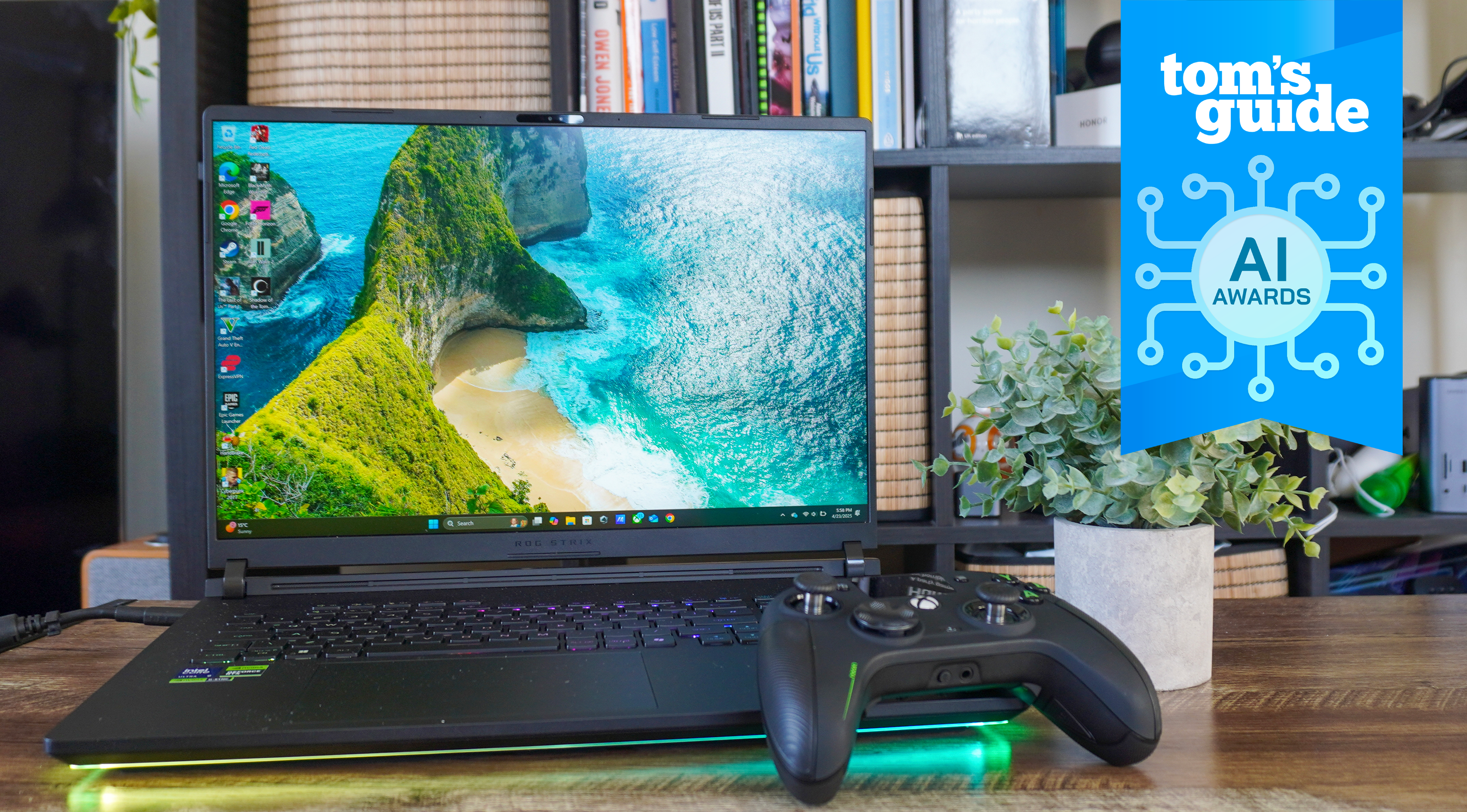
Trying to decide the best AI laptop was an interesting discussion with the Tom's Guide computing team. Do we go for the best overall system that can do some good AI stuff on the side (like the HP OmniBook X), or do we go for the full-blown AI PC with the monster horsepower to train its own models and run complex AI tasks offline?
We decided to go for the latter, which is why the crown goes to the Asus ROG Strix Scar 18. It’s a gaming laptop at heart, but that pairing of RTX 5090 and Intel Core Ultra 9 275HX (combined with a huge total wattage of power) leads to some crazy AI feats for power users.
You see, an NPU is good for everyday AI tasks. But to really push it to the limit, you need a GPU, and the 1,837 trillion operations per second (TOPS) of AI performance quite frankly embarrasses any typical Copilot+ PC.
This means lightning performance on demanding creative AI tasks, like Photoshop neural filters on RAW images, and even the ability to run complex AI models offline for training. - Jason England
Best AI smart glasses: Ray-Ban Meta smart glasses
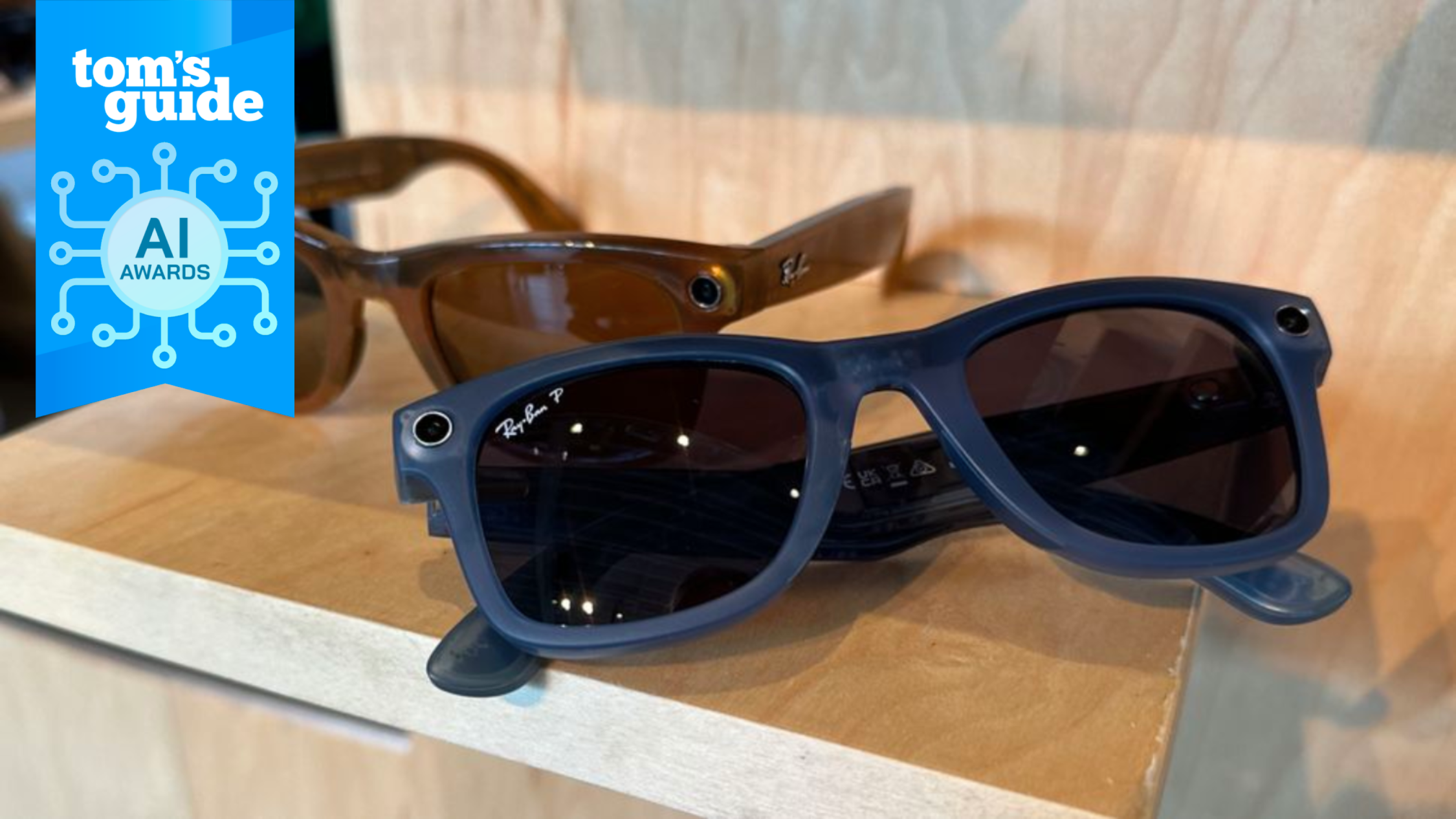
The world of smart glasses is getting increasingly more competitive, with the likes of Android XR coming around the corner and Apple working on a pair of AI glasses of its own.
But the Ray-Ban Meta specs remain on top for now. Why? Simple: an ever-growing list of new AI features that are actually useful.
At first, they started as a glorified pair of audio and camera glasses — nothing much to write home about except for the stylishness of them. But Meta’s biggest AI drops have almost been perfectly timed to moments where our team needed them.
Our managing editor of computing at Tom's Guide used these as a visual AI model that helped him get more information about the sights of Costa Rica, to set reminders based on what he was looking at, and most recently as a live translator.
Glasses are one of the best ways to wear AI on the go, and not only are these the most sleek-looking, they’re the smartest too. - Jason England
Best AI phone feature: Google Pixel Add Me

Google’s latest Pixel phones stand out for their cameras just as much as their AI-powered features. And the two come together beautifully in the Add Me feature for Google Photos.
The person behind the camera has previously had to take a selfie to get in on a group shot, or accept they won’t appear in it. But Add Me allows you to tag out with someone else, letting you find a spot to join for a second photo while showing the outline of the previous shot to make sure you don’t accidentally overlap.
The Pixel will then combine those photos for a final image where everyone who should be in frame is present and accounted for. It’s a complex feat to accomplish, requiring AI and augmented reality working in tandem. But it’s also easy to understand and use, as all the best smartphone feature ought to be.
It’s not just for group shots. Google notes that it can be fun to use the tool to make one person appear twice in the same frame - but however you use it, there’s a lot of potential for fun and meaningful picture-taking. And all without needing to hire a professional photographer to follow you around. - Richard Priday
Best AI smartphone: Samsung Galaxy S25
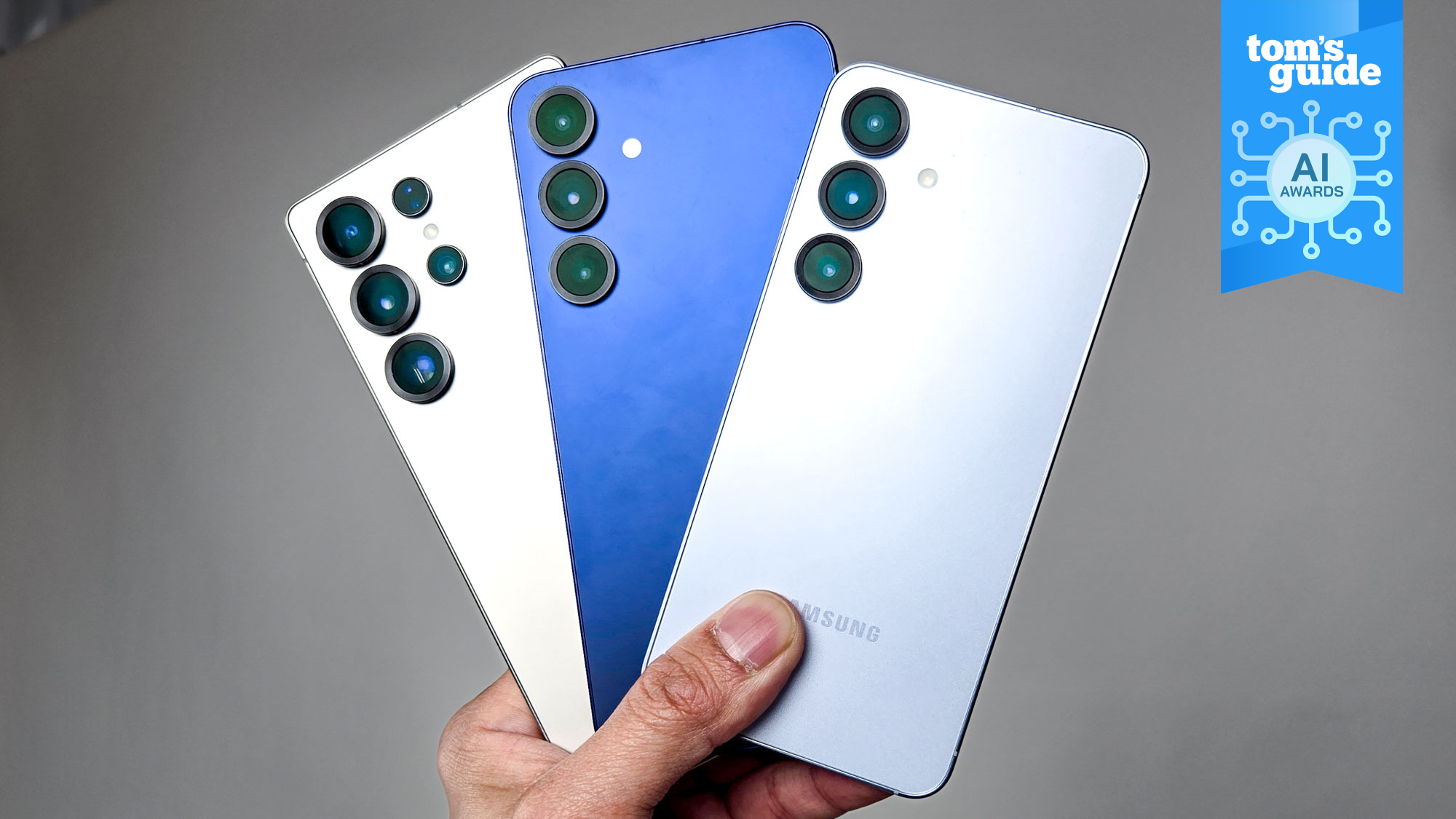
Samsung debuted its Galaxy AI feature package last year, but it’s been taken to another level with the Galaxy S25 series. From the base model to the fully-armed Galaxy S25 Ultra, or the new Galaxy S25 Edge, Samsung offers users all kinds of productive and creative AI tools as a key part of the experience.
As soon as you unlock the S25, you can do things like order Gemini to complete a task involving multiple apps with cross-app actions (compatible with both Google and Samsung-made apps) or open up Now Brief for a personalized look at what’s happened today and what’s coming up.
If something piques your curiosity, you can find out more with Circle to Search, or strike up a conversational search with Gemini Live. In your Photos album, which you can now search with natural language rather than tags and keywords, you can use Generative Edit to tidy up or add more to your shots.
Auto Trim and Audio Eraser are also available to help cut together and improve the sound of video clips. Plus, the usual text-based tools of transcribing audio, translating between languages or tweaking your text to better match a given style are still here too. And that’s not even mentioning the health advice and tracking enabled by using a Galaxy Watch or Galaxy Ring wearable.
It’s safe to say there’s an enormous variety of AI tools at your disposal on the Galaxy S25 series. And that should mean that whoever you are, there’s something you’ll find useful. - Richard Priday
Best AI sleep feature: Eight Sleep Pod 4
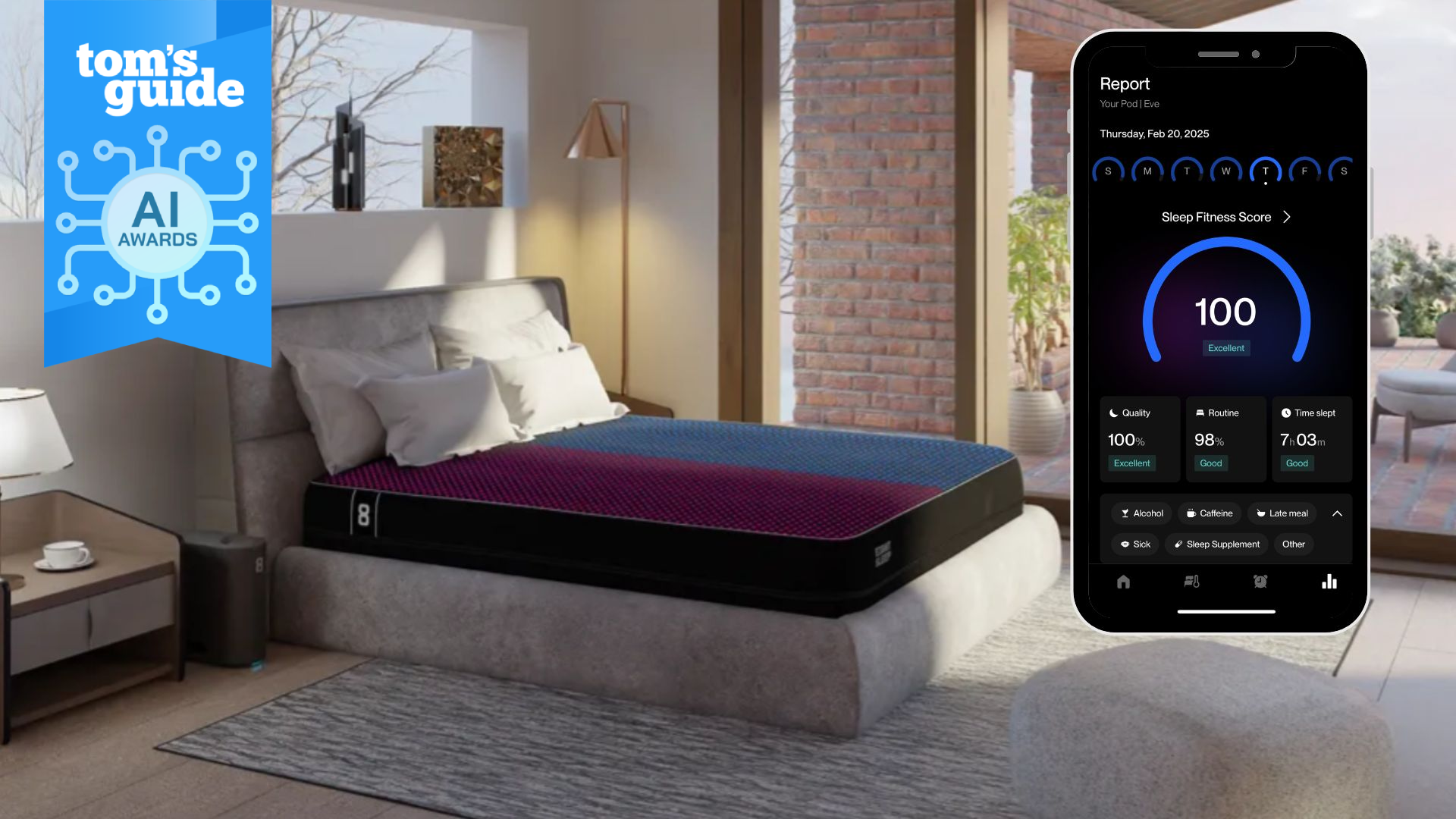
Eight Sleep is at the forefront of smart bed technology using AI primarily in its sleep analyzer and coaching systems to enhance sleep quality, which is why we rate it as one of the best smart mattresses on the market today (despite not being a mattress at all.)
The Eight Sleep Pod 4 is a smart mattress cover that can turn any mattress into an AI-powered bed that heats up and cools down through the night to keep you at the best temperature for sleeping. It also tracks your sleep metrics without you having to wear anything and wakes you up gradually with a vibration and thermal alarm.
Where does AI come into play? Eight Sleep’s AI, ‘Autopilot’, is trained on nearly 10 million hours of sleep data. This in-bed system learns about your individual sleep habits and makes real-time adjustments to keep you sleeping peacefully.
The cover is laced with sensors that track your individual biometrics, including heart rate and sleep stages, while the AI sleep coach translates this data into personalized sleeping tips, which you access via the compatible app. - Nicola Appleton
Best AI health and fitness device: Runna
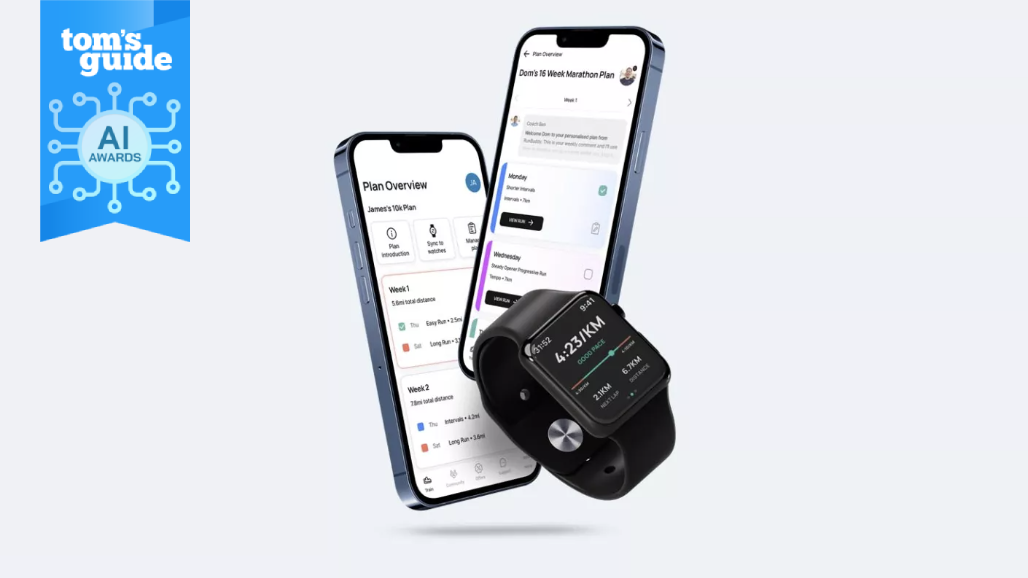
Runna is one of the best running apps on the market, and for good reason — it’s like having a running coach in your pocket. The clever app uses AI to provide runners with tailored training plans and then make adjustments based on their goals and performance.
Like a real coach, the AI tool will analyze data from your sessions and make suggestions on pace targets and your overall training.
Unlike other fitness AI products, which regurgitate information you’ve already submitted, Runna really adds something to your training and takes the guesswork out of analyzing your progress.
During testing, we were impressed with the easy-to-use interface and how the app breaks training down into easy-to-understand sessions. You can also easily download the sessions onto your running watch, as the app easily syncs with Garmin, Coros, and Apple Watches.
In fact, our senior fitness editor used Runna for 16 weeks to train for her fifth marathon and ended up taking 14 minutes off her PR. - Jane Mcquire
Best AI TV: Samsung S95F OLED
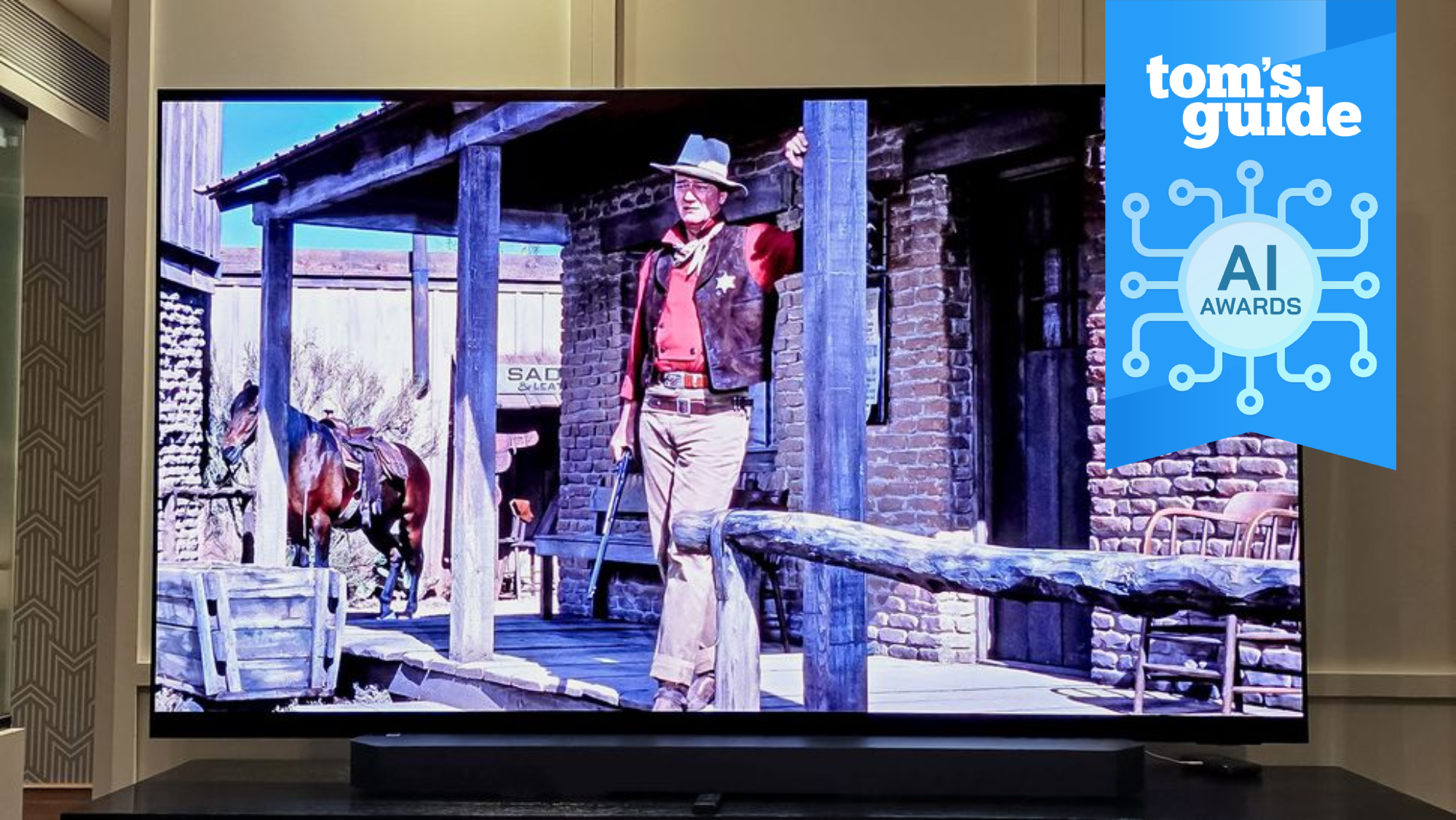
Despite what they're advertising, few TVs are leveraging AI in new and exciting ways. For 2025, LG has added a chat assistant in its new OLED lineup, while Sony continues in its efforts to re-brand its basic upscaling tech as cognitive AI.
Of all the TV makers out there, however, Samsung seems to be the one putting in the work to make AI a useful aspect of its OLED TV lineup with its AI Vision technology. This is available on sets like the Samsung S95F.
Part of AI Vision's mission is better upscaling via a content pattern recognition algorithm, but it also supports Galaxy Watch's Universal Gestures and adds Live Translate that detects and translates the dialog in movies and shows into your preferred language in real time.
Less useful features like AI-generated wallpaper and a smarter version of Samsung's Bixby voice assistant are also available here. But, by and large, Samsung feels like it's taking TV AI in the right direction compared to the competition. - Nick Pino
Best AI wearable: Plaud NotePin
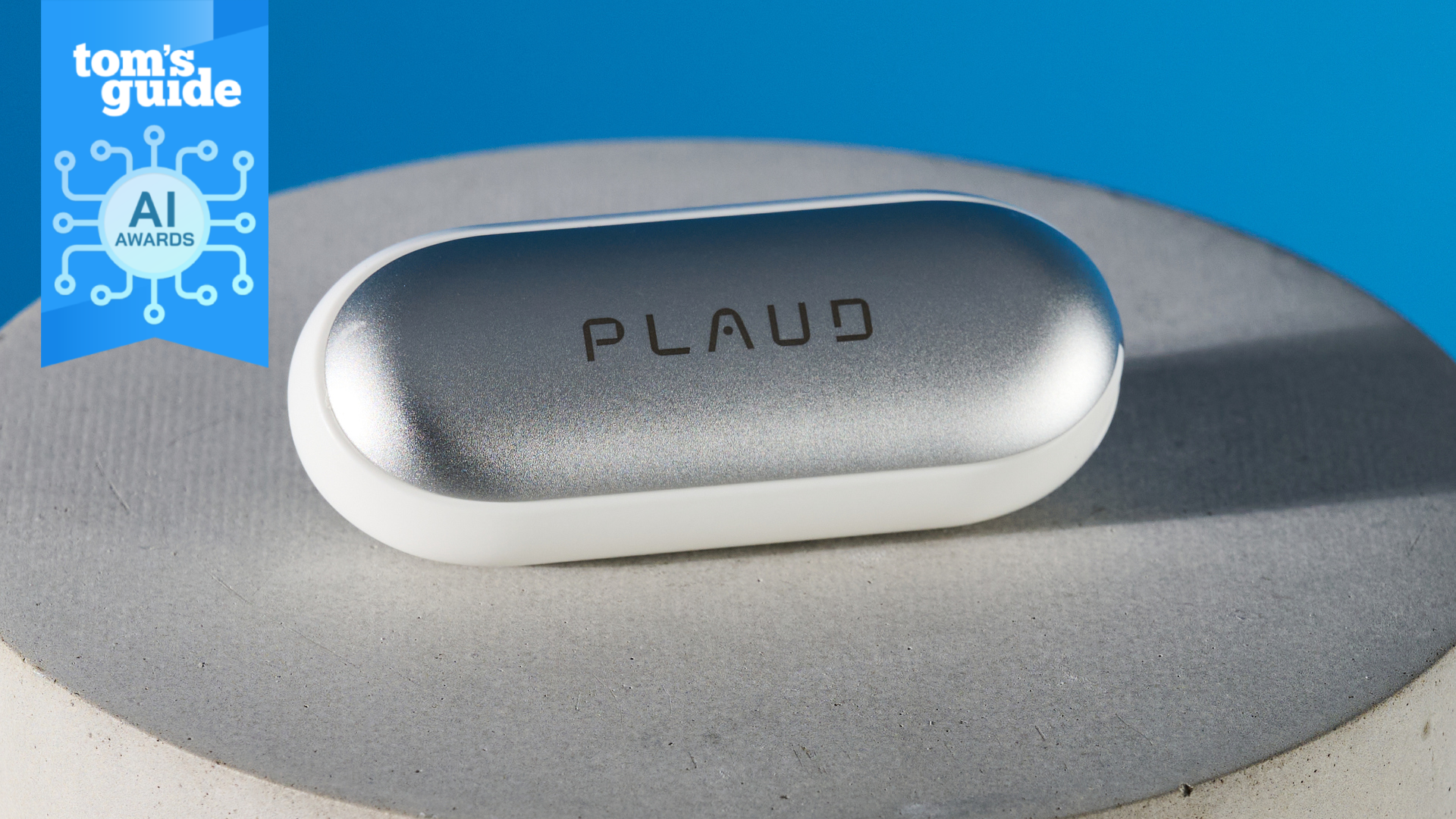
The Plaud NotePin is one of the most interesting products we've reviewed — and our team at Tom's Guide reviews dozens of new devices every month. We approached the NotePin with a degree of skepticism after the likes of the Rabbit R1 and the Humane AI Pin.
However, we experienced a simple yet helpful solution when we tested the Plaud NotePin. It’s basically just an AI-powered dictaphone. Instead of you transcribing the contents of your audio files, the NotePin deals with all that for you. Thanks to this wearable, you can even configure the transcriptions to format precisely how you need.
We also loved the design and versatility. At just two inches long it can be worn as a watch, necklace, pin or clip. On top of being super inconspicuous, it’s also pretty adept at turning hours of speech into easily-digestible writing. - Erin Bashford
Best AI smart home device: Eufy C220 Indoor security cam
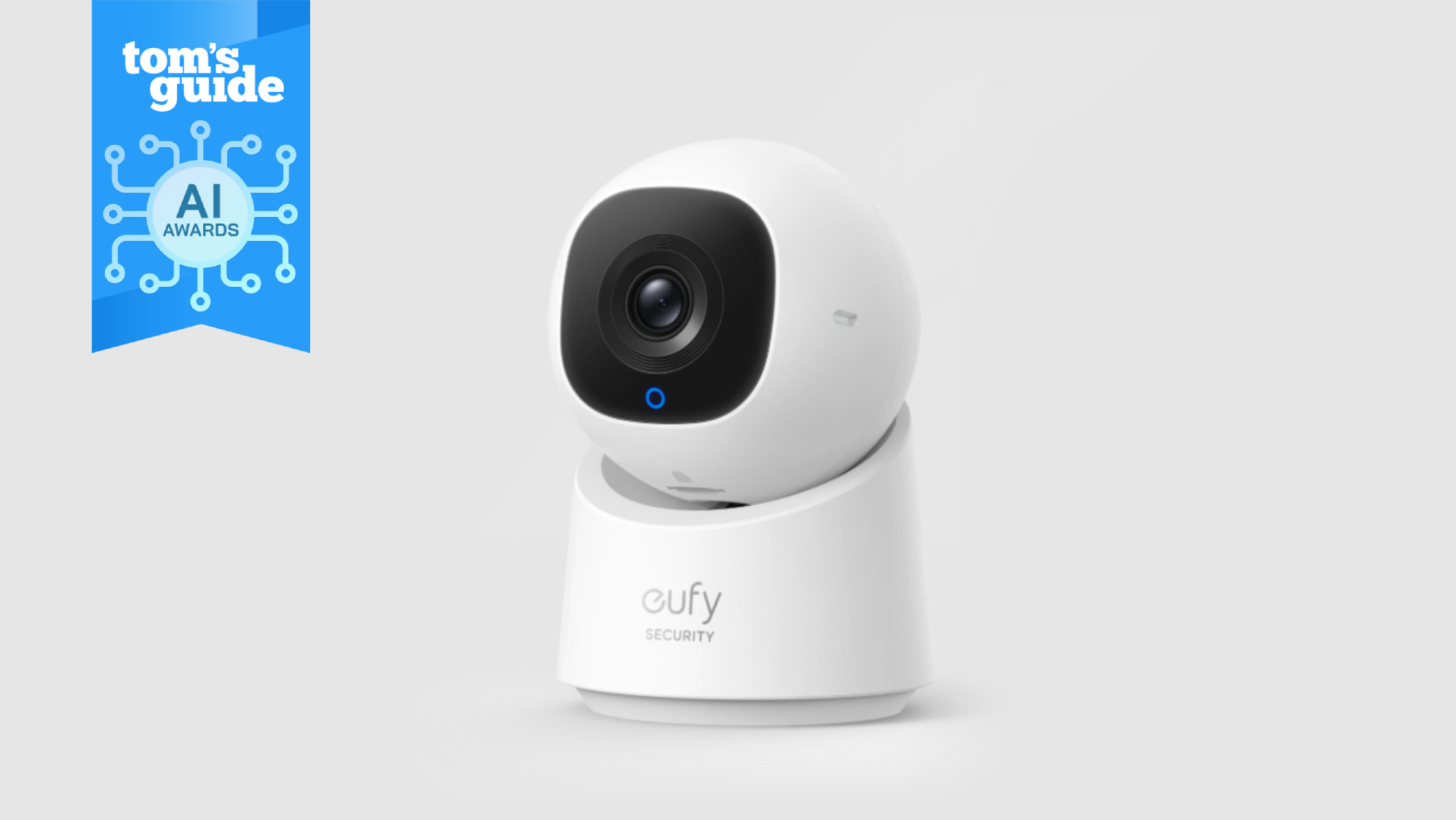
In a world where Ring is synonymous with security cameras, Eufy is quietly cleaning up with an AI-enabled indoor camera that offers an easy, clean interface, useful features and a high-quality image day or night.
The C220 is comparable to many other indoor security cameras, but after testing it for a short period of time I found a lot to recommend about it.
The 2K video is clear, as is the audio, which makes the C220 useful no matter what room it's in. The 360-degree pan and tilt lets you check on every corner of a room or area, and the Privacy Mode allow you to shutter it when necessary.
The AI motion detector catches any movement in the room, whether it's an intruder or simply your cat heading out for a stroll.
The camera can identify human figures, recording their entire route and ensuring they remain in sight. While this (hopefully) shouldn't be needed for intruders, it is a nice way to watch back moments that happen in your daily life (and is there for safety if needed).
And because the C220 can use a microSD card, it doesn’t require a subscription in order for you to play back video. - Amber Bouman
More from Tom's Guide
- I've been using ChatGPT since its release — here's 5 tips I wish I knew sooner
- What is Claude? Everything you need to know about Anthropic's AI powerhouse
- Gemini Live belongs in your hiking pack — here's how it can help keep you safe

Alex is the AI editor at TomsGuide. Dialed into all things artificial intelligence in the world right now, he knows the best chatbots, the weirdest AI image generators, and the ins and outs of one of tech’s biggest topics.
Before joining the Tom’s Guide team, Alex worked for the brands TechRadar and BBC Science Focus.
He was highly commended in the Specialist Writer category at the BSME's 2023 and was part of a team to win best podcast at the BSME's 2025.
In his time as a journalist, he has covered the latest in AI and robotics, broadband deals, the potential for alien life, the science of being slapped, and just about everything in between.
When he’s not trying to wrap his head around the latest AI whitepaper, Alex pretends to be a capable runner, cook, and climber.
- Amber BoumanSenior Editor Security
- Jason EnglandManaging Editor — Computing
- Erin BashfordSenior Writer, Reviews
- Richard PridayAssistant Phones Editor
- Jane McGuireFitness editor
- Nicola AppletonSleep Editor
- Nick PinoManaging Editor, TV and AV
- Amanda CaswellAI Editor
You must confirm your public display name before commenting
Please logout and then login again, you will then be prompted to enter your display name.
 Club Benefits
Club Benefits

















